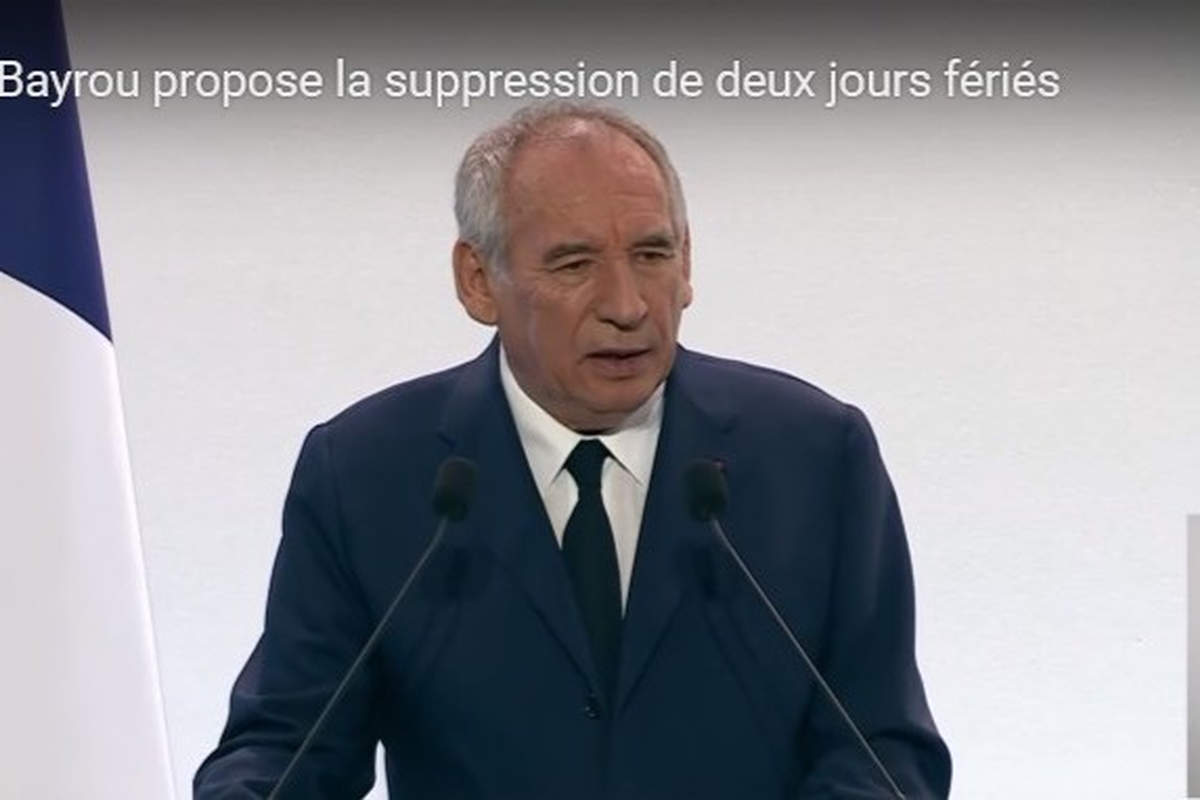The Prime Minister has drawn up a catalog of measures aimed at massively reducing the public deficit. Everyone will have to make an effort to achieve 43.8 billion in savings by 2026.
François Bayrou’s stated objective is to reduce the deficit from 5.4% of GDP in 2025 to 4.6% in 2026, with a trajectory towards 3% in 2029 in order to meet European criteria. This represents a total budgetary effort of €40 to €44 billion, including additional defense costs of around €43.8 billion.
A blank year and tightening of the screws everywhere
Among the measures recommended by Bayrou: a freeze on increases in 2026: pensions, social benefits, income tax and CSG will remain at the same level as in 2025 – a temporary collective effort estimated at €7 billion.
A rebalancing of social spending, including €5 billion in planned savings on healthcare expenditure:
- Doubling the medical deductible (from €50 to €100),
- Reduction of sick leave deemed abusive,
- Re-examination of reimbursements excluding long-term conditions.
Civil service & job cuts
The Prime Minister’s plan calls for 3,000 job cuts in the civil service, thanks to the non-replacement of one in three retiring civil servants.
The increase in the defense budget provides for a surplus of €3.5 billion for defense in 2026 (and €3 billion in 2027), covered by the overall savings plan.
Deletion of public holidays
Bayrou proposes to abolish two public holidays, Easter Monday and May 8 (Victory Day 1945), in order to generate several billion euros.
Fight against fraud and tax niches
To achieve further savings, the government will step up the fight against tax, social and health fraud. A bill will be tabled in the autumn to improve fraud detection and recovery. Other measures include the elimination of tax niches deemed inefficient, and the introduction of a flat-rate tax to replace the 10% deduction on pensions for low-income pensioners.
Bayrou’s plan also calls for the creation of a “solidarity contribution” for the highest incomes, the contours of which will be determined by parliamentary commissions.
Justification and political context
François Bayrou emphasized France’s excessive dependence on public spending (57% of GDP) and the urgent need to correct this drift to avoid a Greek crisis. He warned, “We’ve gotten used to the deficit… every second, France’s debt increases by €5,000.”
These measures mark one of the most rigorous budgetary efforts of the Fifth Republic. They are nonetheless hotly contested, and are likely to fuel a motion of censure, particularly in the face of a Parliament without an absolute majority.
“A speech of truth”
“There’s no courage in promising what you can’t finance. Courage means saying that we must collectively correct a habit that is fatal for the country”, explains François Bayrou, who assumes a discourse of truth, even if it means going against immediate popularity. He claims a republican approach to responsibility, while preparing public opinion for temporary sacrifices “to save the French social model in the long term.”
Political reactions
Rassemblement National (RN)
Marine Le Pen: “We support the need to reduce the deficit, but not on the backs of the modest French. The abolition of public holidays and the freezing of pensions are unacceptable.” The RN is threatening not to vote for the budget, and has raised the possibility of a motion of censure, although it has not yet confirmed this.
Les Républicains (LR)
Éric Ciotti and Bruno Retailleau criticize “a poorly-targeted effort, which avoids really reducing the number of civil servants and reviewing public policies.” The LR proposes instead a reform of the State and a reduction in local spending.
Nouveau Front Populaire (NFP) – Union of the Left
Jean-Luc Mélenchon (LFI) and Olivier Faure (PS) denounce “a massive austerity plan”. The NUPES (ex-NFP) is calling for a referendum and is considering a motion of censure with other groups.
Horizons and Renaissance (centrists)
Parties close to President Macron are cautiously supporting the Prime Minister, but express concerns about the social impact. Some of the Renaissance members spoke off the record of “courageous but politically risky measures”.
Reactions from unions and employers
Trade unions (CGT, CFDT, FO, UNSA) are calling for a nationwide strike in autumn 2025. The CFDT deplores the lack of consultation, even though it recognizes the need for a budgetary trajectory. The CGT calls it a “frontal attack on social rights”.
MEDEF and CPME: The employers’ association welcomes the “return to budgetary orthodoxy”, but is concerned about a “slowdown in domestic consumption” due to the freezing of benefits and tax hikes for high-income earners.

